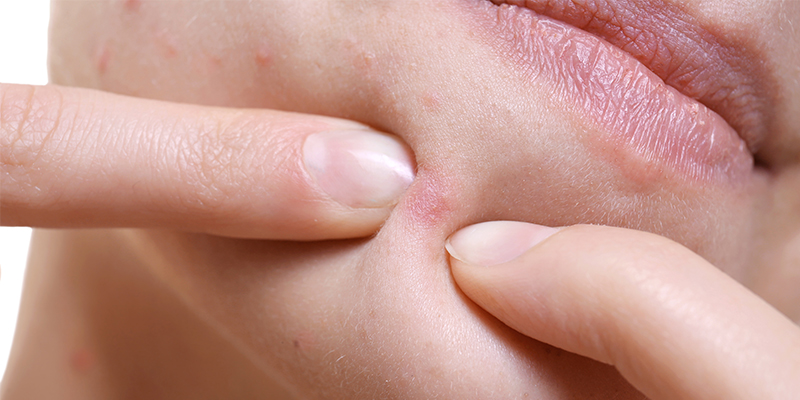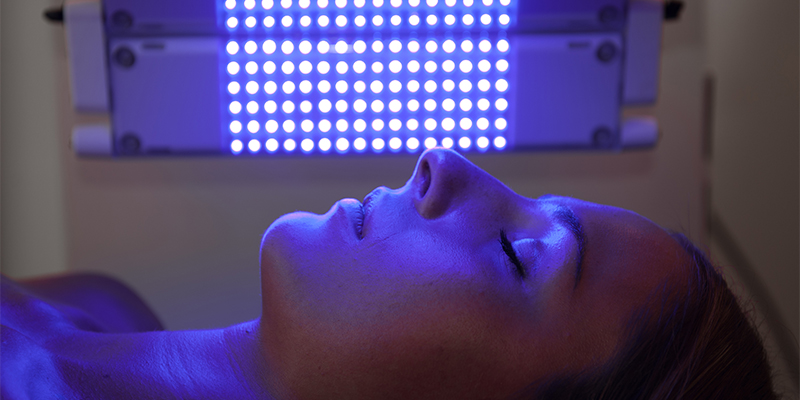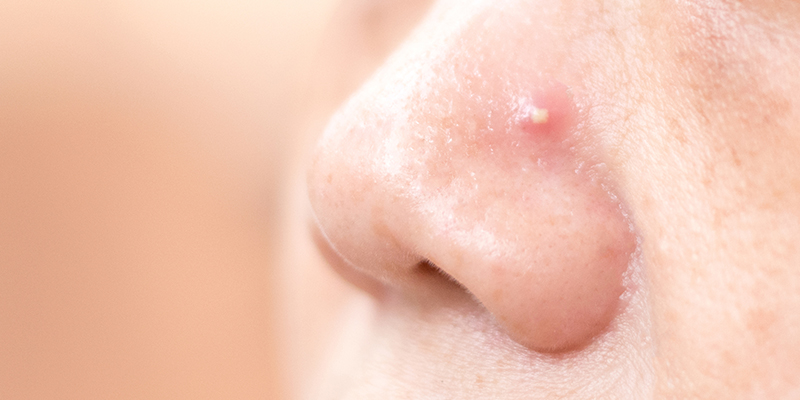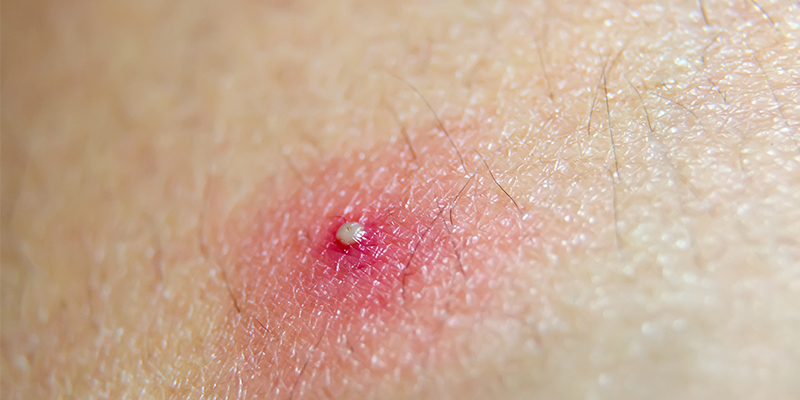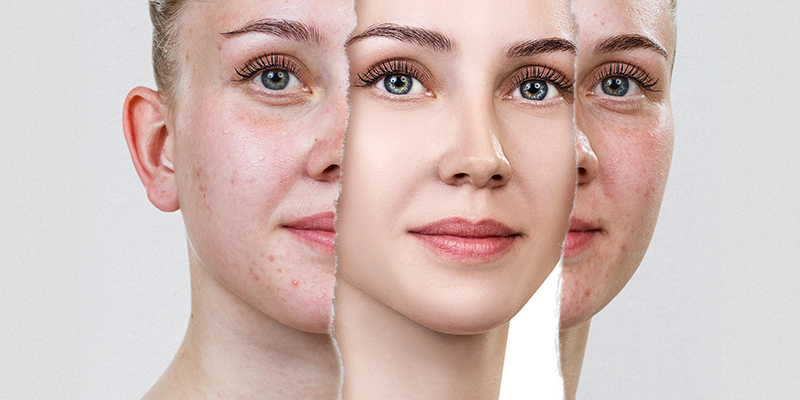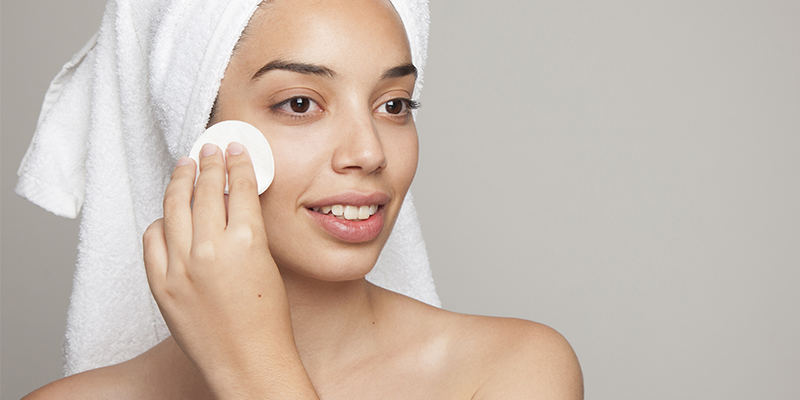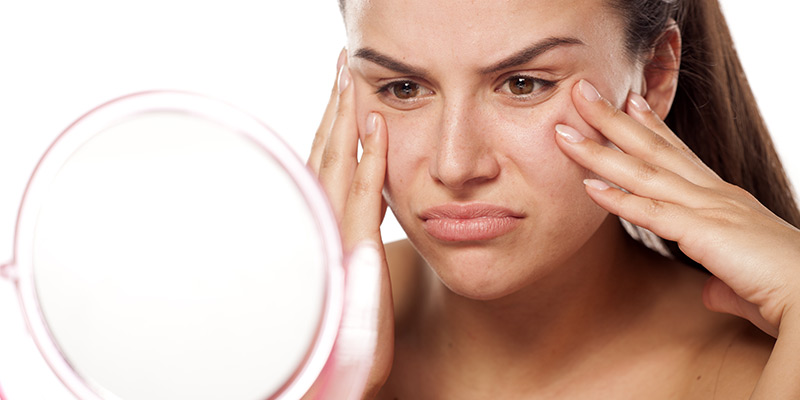How To Treat Acne On Chin And Jawline?
Pimple is a disorder that causes an outbreak of skin lesions, resulting in red, painful, and unsightly lumps. Pimple can occur in various parts of the body; however, the commonly affected area is the face. This article is dedicated to providing a thorough analysis of chin and jawline acne, their causes, and treatment.
Pimples On Chin And Jawline Meaning
The lower portion of the face, including chin and jawline, may get affected by large, deep, pimples known as chin acne. These unsightly blemishes on chin can be full of pus and really painful in some cases, however in other cases they can be small, painless and under the skin, known as blind pimples.
More about this condition:
- Hormonal fluctuation is the primary cause of chin acne
- This condition is found in both teenagers and adults
- Primary age group (upto 80%) affected is between 11-35 years
- Common types of blemishes are blackheads, whiteheads, and cystic acne
- Found with both males and females
- Usually red in colour due to inflammation and infection.
- It can be hard, itchy and painful
Must Read: What Is The Best Treatment For Severe Acne?
Reasons For Acne On Chin
The top reasons for pimples on chin are explained below –
- Hormonal Fluctuations – Hormonal imbalances caused during puberty, menstruation, menopause, pregnancy can trigger the overproduction of oil by the sebaceous glands present in the skin. The excessive oil leads to clogged pores due to the activity of dead skin cells, dirt and bacteria. The hormonal acne on chin doesn’t usually occur alone and affect the entire T-zone namely forehead, nose, chin and jawline. These may be moderate to severe acne that can get painful if not treated properly.
- Stress – Stress can cause painful pimples on chin and jaw areas. This happens due to the inflammatory stress hormone named cortisol which may lead to overproduction of oil by the skin’s glands. The excessive oil production leads to clogged pores and hence chin acne.
- Poor Lymph Drainage System – The lymphatic system is responsible for the transport of nutrients and waste material between body tissues and blood. The lymph nodes help to block any bacteria or pathogen from entering into the body. Any blockage in the lymphatic system can hinder the filtration process and lead to accumulation of toxins in the blood as well as lymph. This may lead to acne on chin and jawline area.
- Inadequate Sleep – Sleep deprivation can cause psychological stress to the skin. This leads to abnormalities in the skin structure as well as skin repair. Also, inadequate sleep leads to increased insulin resistance that eventually increases sugar in the body – one of the major causes acne on chin.
- Poor Hygiene – Not maintaining proper hygiene of face generally results in acne on chin. Also, chin is the most frequent touched area of the face and dirty hands can easily transfer bacteria to the chin leading to acne breakouts.
- UV Rays – Exposure to skin’s harmful UV rays can be the precursor of acne on chin due to overproduction of oil. Also, if you don’t use a sunscreen, it can dry out the skin excessively leading to excessive production of oil by the skin eventually resulting in clogged pores.
- Weather Conditions – Heat pimples on chin usually appear due to exposure to intense heat and humidity climatic conditions. They usually appear as small but itchy pimples on the chin.
Must Read: How To Get Rid Of Acne?
Treatment Options For Acne On Chin And Jawline
Acne on chin is not a serious issue in most cases but the lack of timely treatment may make it worse or severe. Fortunately, there are a lot of effective chin acne treatment options available to get relief from these unsightly, painful and stubborn acne.
- Hormonal Therapy – Hormonal therapy is great for chin acne. The dermatologist will prescribe you with birth control pills to combat stubborn chin and jawline acne that is caused due to the fluctuations in hormones. It is found most effective in treating inflammatory cystic acne on chin.
- Oral Antibiotics – The dermatologists usually recommend oral antibiotics as the first line of treatment for chin acne. These antibiotics will help reduce the bacteria on the skin and may show results in a few weeks.
- Creams and Medications – Many over-the-counter acne remedies and topical ointments, gels, creams etc. help to kill the can-causing bacteria, reduce oil on the skin and unclog pores. The prescription treatments contain retinoid, benzoyl peroxide and salicylic acid as active ingredients and work effectively for mild to moderate chin acne. For severe acne, Isotretinoin is prescribed to be taken orally.
- Laser Treatment – Laser therapy is an advanced treatment that effectively targets acne-causing bacteria and other impurities in chin acne. The treatment works from one session itself and also reduce acne scarring.
- Chemical Peels – Chemical peels help in reducing the appearance of blackheads, whiteheads and small pimples on the chin and jawline. Popular chemical peels to treat chin acne include glycolic and salicylic acid peels.
When To See An Acne Doctor?
Chin and jaw acne are unsightly and painful so it is best to visit your nearest dermatologist as soon as you start seeing the initial signs of breakout. The acne condition can become worse in no time so it is recommended to get it treated as soon as the dermatologist identify the acne causes.
Must Read: How To Get Rid Of Breakouts On Face?
How To Prevent Pimples On Chin?
Pimples on the chin and jawline can be prevented by following certain practices and knowing what to avoid. Here are they –
- Wash your face methodically. It is important to cleanse your face thoroughly with a medicated cleanser twice a day, especially after a workout session.
- Avoid harsh scrubs that may do more harm than good. It is important to use a mild scrub with gentle strokes for thorough cleansing of the pores.
- Avoid stress as it may lead to hormonal flares on the chin area.
- Follow a healthy lifestyle with a healthy diet and moderate exercise.
- Wear a broad spectrum sunscreen to protect your skin from UV rays.
- Always use oil-free and non-comedogenic makeup or skin care products. Opt for water-based products that are gentle to the skin.
- Maintain proper hygiene and change your sheets as well as pillowcases every week.
- Avoid touching your chin frequently or using dirty mobile phone as it may transfer bacteria on the chin area. Make sure to sanitize your hands as well as mobile phone when required.
- Use gentle hair removal techniques and proper shaving techniques to avoid the problem of ingrown hair or unnecessary rashes.
- Shampoo your hair regularly if you have a hairstyle that doesn’t let your hair away from the jawline.
Must Read: Best Skin Care Regime For Acne
Can Diet Help?
Certain foods in our diet may also be playing with the hormonal levels so changing diet can be helpful to get rid of chin pimples fast.
- Foods rich in zinc – Zinc kills acne-causing bacteria and reduces inflammation. Foods that are rich in zinc are chicken, sunflower seeds, nuts and pulses.
- Foods rich in beta-carotene –Beta-carotene is a form of Vitamin A which keeps the skin clear and healthy. Foods rich in beta-carotene include carrots, yellow fruits, orange fruits, apricot and mango.
- Foods to reduce testosterone – Excessive testosterone gets converted into Dihydrotestosterone which is a far more acne-stimulating hormone. Foods that help in reducing testosterone in the body include liquorice, mint tea, linseeds.
- Green leafy vegetables – Leafy vegetables helps to clear out toxins from the body and keep our skin clear. These include spinach, broccoli, kale, watercress etc.
- Probiotics – Probiotics keep our gut healthy which in turn affect acne-causing microflora in our gut keeping them checked. They also help reduce the oxidative stress that can reduce acne breakouts.






